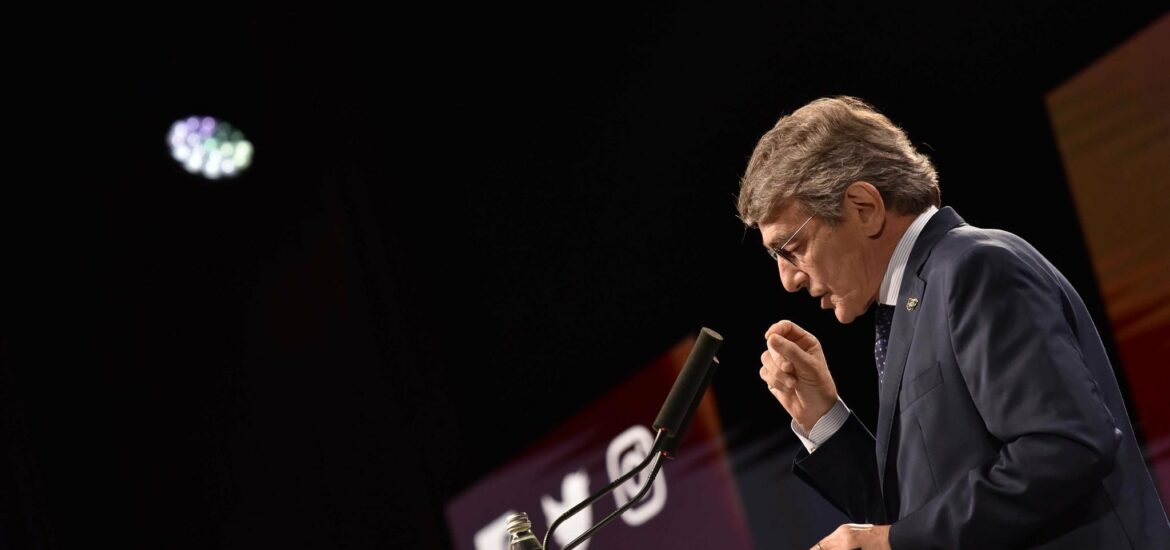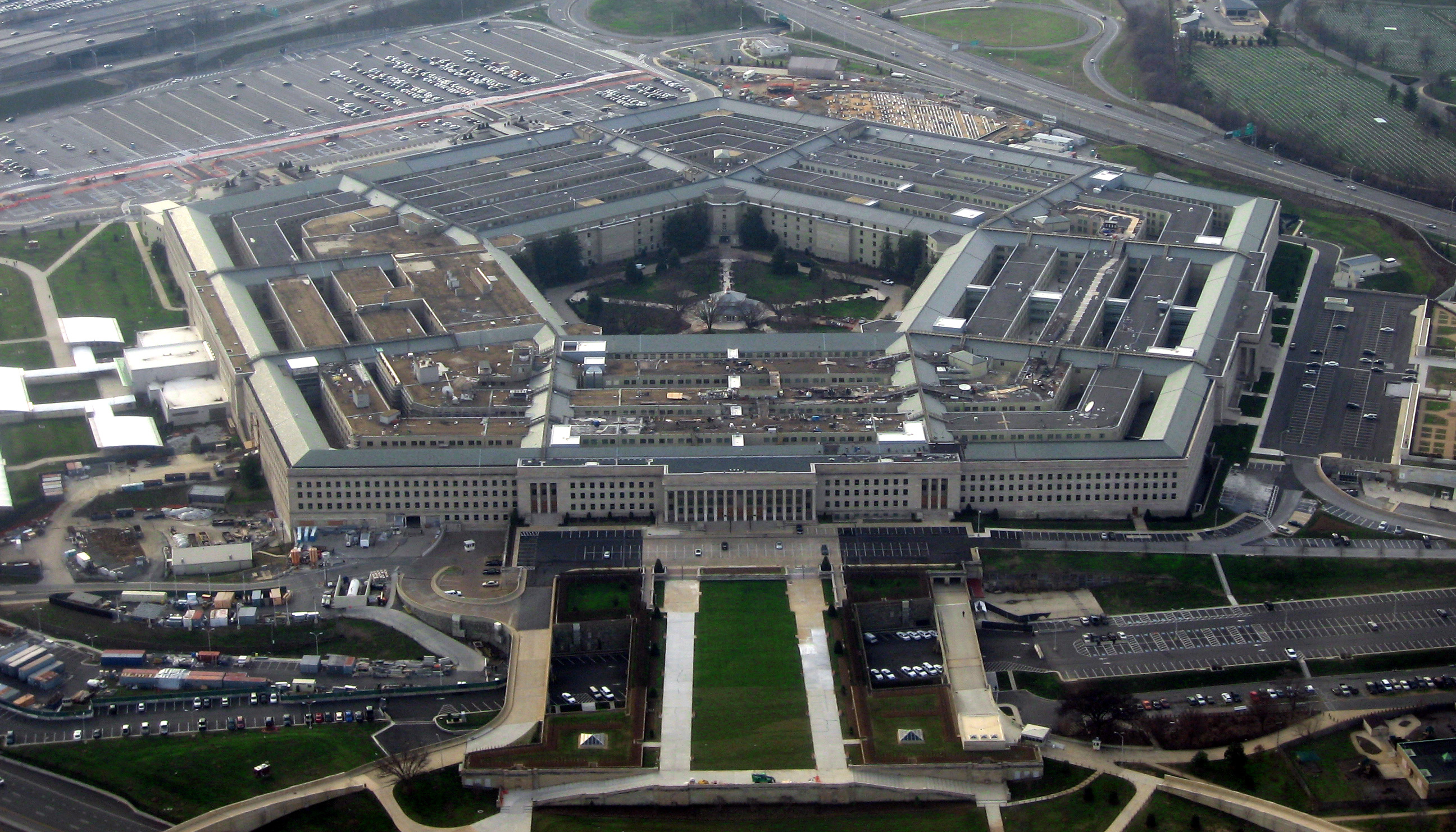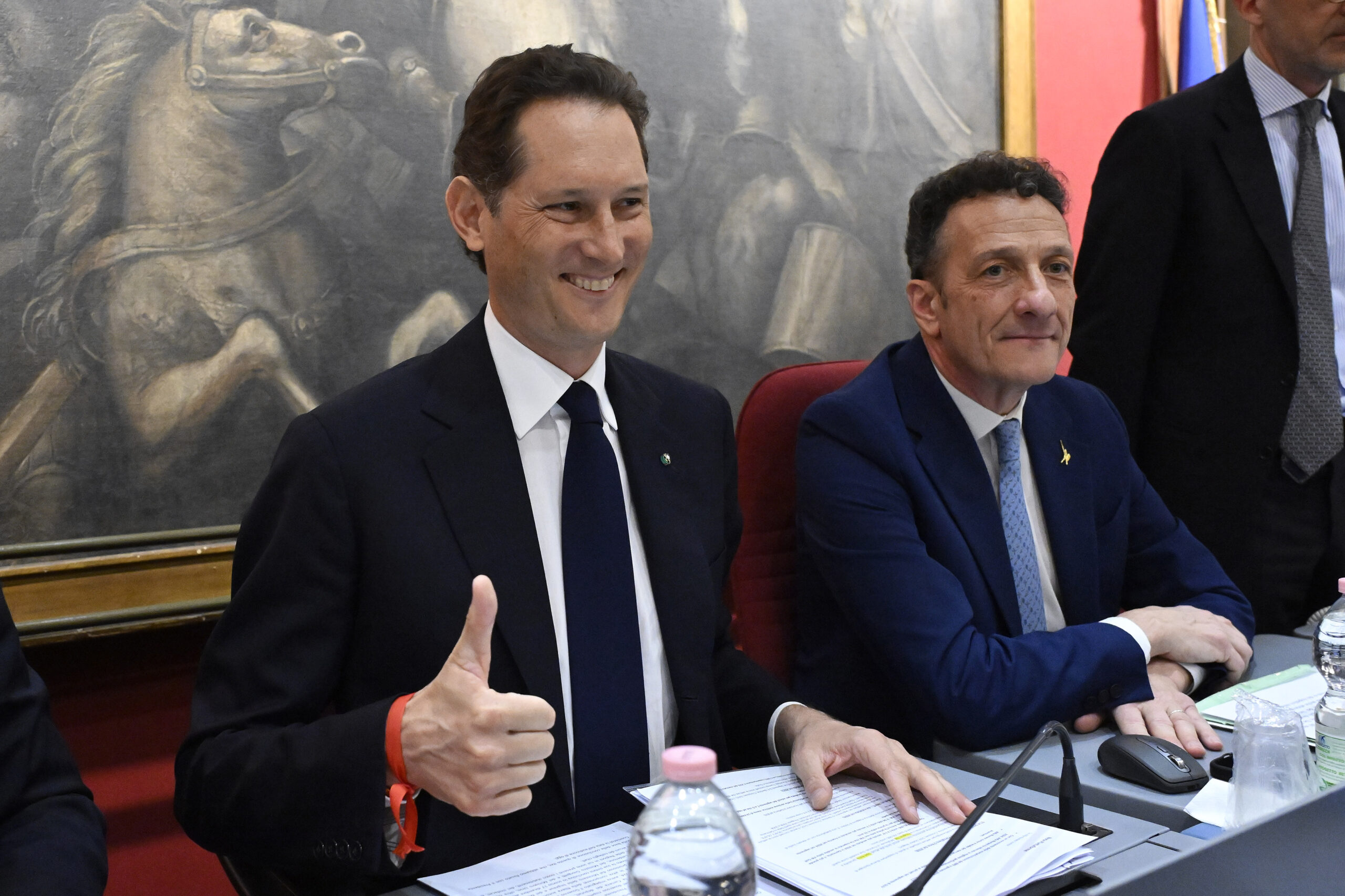Un carteggio fra David Sassoli (Socialisti e democratici) e Lidia Pereira (eurodeputata del Ppe) sulle misure anti Covid all’Europarlamento mostra indirettamente come le tensioni tra i due gruppi parlamentari a Strasburgo in vista dell’elezione del prossimo presidente dell’Europarlamento sono a fior di pelle e si concentrano anche su aspetti ritenuti secondari.
A contestualizzare il carteggio che segue è utile un articolo di Huffington Post Italia di due giorni fa:
“Non ci sono le condizioni per votare un candidato del Ppe” alla presidenza del Parlamento Europeo per la scadenza di metà mandato. Una fonte dei Socialisti&Democratici ci anticipa così l’esito della riunione del gruppo con il presidente attuale del Parlamento europeo David Sassoli, in programma oggi a Strasburgo dove l’Eurocamera è riunita in plenaria. Alla vigilia delle votazioni nel gruppo del Ppe per la scelta del candidato alla presidenza – domani dovrebbe essere nominata la maltese Roberta Metsola – i socialisti ufficializzano ciò che era nell’aria da mesi: all’appuntamento con l’elezione del presidente a gennaio, proprio negli stessi giorni in cui il Parlamento italiano sceglierà il successore di Sergio Mattarella al Quirinale, avranno un loro candidato. Chi? Sassoli. Reduce da due mesi di malattia per polmonite, il presidente, con il sostegno del suo gruppo, è determinato a correre per il secondo mandato per la parte restante della legislatura europea.
Dunque, ufficialmente a partire da oggi, il patto del 2019 tra socialisti e popolari, secondo cui a Sassoli sarebbe subentrato il presidente del Ppe Manfred Weber, non esiste più. Non solo perchè Weber si è ritirato dalla corsa già a settembre. Ma anche per una serie di altre ragioni. Secondo i socialisti, “è stato il Ppe a stracciare quel patto quando ha sostenuto la nomina del conservatore irlandese Paschal Donohoe alla presidenza dell’Eurogruppo, incarico che invece doveva andare alla ministra socialista spagnola Nadia Calvino”. La nomina di Donohoe a capo dei ministri finanziari dell’Ue nel 2020 ha cambiato l’equilibrio politico nelle istituzioni europee estromettendo i socialisti dai vertici: la presidente della Commissione Europea Ursula von Leyen è del Ppe, il presidente del Consiglio Europeo Charles Michel è liberale, in quota al gruppo politico macroniano ‘Renew Europe’.
+++
+++
DECISION OF THE PRESIDENT OF THE EUROPEAN PARLIAMENT
of 25 November 2021
on security measures to limit the spread of COVID-19
THE PRESIDENT OF THE EUROPEAN PARLIAMENT,
Having regard to Article 22(5) of the Rules of Procedure of the European Parliament,
Having regard to the Bureau Decision of 15 January 2018 on rules governing security and safety in the European Parliament,
Whereas:
( 1) Parliament recently reinforced its risk-mitigation and safety measures in order to protect the health of Members, staff and other persons working in the European Parliament. Following the Decision of the Bureau of the European Parliament of 27 October 2021 on exceptional health and safety rules governing access to the European Parliament’s buildings, access to Parliament’s buildings in the three places of work is granted only upon presentation of a valid EU Digital COVID Certificate or of an equivalent certificate.
(2) Based on the latest data provided by the European Centre for Disease Prevention and Control, the epidemiological situation within the Union continues to deteriorate and the overall case notification rate is high and rapidly increasing. Even though the numbers vary considerably between Member States, a further increase of the case notification rates, death rates and hospital admissions is expected in all Member States.
(3) Many Member States have strengthened their measures to limit the increased spread of COVID-19. Those measures include the reintroduction of restrictions on access by persons to certain facilities open to the general public, restrictions on entry by employees to their workplace and limitations on the freedom of movement. In many instances, those restrictions do not apply when a person is able to present an EU Digital COVID Certificate or another proof of vaccination, recovery or negative PCR test.
(4) In response to those developments, by Decision of the President of 19 November 2021 extraordinary measures including the remote participation regime were reintroduced to enable Parliament to continue to carry out its duties and to exercise its prerogatives.
(5) In addition to those extraordinary measures and based on the advice of the Medical Service, the security measures should be tightened in order to further minimise health risks for Members, staff and other persons working in Parliament. Except in specific cases, no individual visitors should have access to Parliament’s buildings. Visitor groups should enter Parliament’s buildings only in dedicated and restricted facilities and for a transitional period.
(6) In order to minimise social gatherings and in-house infections, events and exhibitions in Parliament’s buildings should not be organised unless they are of an institutional nature such as the award of prizes or other institutional ceremonies.
(7) Access to meetings of committees, interparliamentary delegations and other bodies should, in principle, be limited to Members, essential staff of the secretariat, one representative of each political group and persons invited by the chair. Following the Decision of the President of 19 November 2021 on extraordinary measures, physical distancing of 1,5 metre between attendees also has to be respected during such meetings. Other staff, including accredited parliamentary assistants, other representatives of political groups and, for meetings held in public, accredited media representatives, should also have access to those meetings insofar as physical distancing of 1,5 metre is guaranteed. For meetings organised by political groups, similar rules on physical distancing should apply and interest representatives or visitors should be allowed to attend only upon invitation by the Chair.
(8) On 16 July 2021, the Secretary General of the European Parliament decided that as of 1 September 2021 new teleworking rules apply to staff of Parliament’s Secretariat by making available three different modes of teleworking. By notice to staff of 18 November 2021, the Secretary General decided to introduce a system of teleworking of three days per week (60%), on average per month, for all staff members within the administration where it is compatible with the fulfilment of their duties (‘maxi’ teleworking mode). Pursuant to Article 1(2) of the Decision of the Secretary General of 16 July 2021, the ‘maxi’ teleworking mode may also be applied to staff of Members ( accredited parliamentary assistants and trainees) and staff of political groups so to further minimise health risks for persons present in Parliament.
(9) It should be ensured that each office assigned to a Member is occupied by no more than one member of staff of a Member at the same time. For the part-session starting on 13 December 2021, only one member of staff of each Member should be physically present in Parliament’s buildings in Strasbourg at the same time.
(10) As recommended by Parliament’s Medical Service in order to reinforce the protection of Members and staff as well as to further reduce the release of infectious respiratory particles, medical face masks ENl 46831 or FFP2 respiratory protective devices2 (hereinafter ‘medical face masks’) should be worn while in Parliament’s buildings, save in specific circumstances. It should in particular not be allowed for anyone to circulate throughout Parliament without wearing a medical face mask while consuming beverages or food.
(11) The World Health Organization lists fever as one of the most common symptoms of COVID-19. Parliament’s Medical Service advised, in line with an evolving understanding of the respiratory illness caused by the novel coronavirus COVID-19, that an increased body temperature of37,7 degree Celsius or more should be considered as a possible symptom of COVID-19. Detection of an increased body temperature before entering the Parliament’s buildings and subsequent denial of access can further reduce the spread of, and infection with, the COVID-19 virus.
(12) In light of the above, the measures laid down in the Decision of 28 October 2021 on security measures to limit the spread of COVID-19 should be adapted as set out in this Decision.
(13) In the implementation of this Decision, Parliament should ensure the protection of privacy and personal data in compliance with Regulation (EU) 2018/1725 of the European Parliament and of the Council.’ and the Bureau Decision of 17 June 2019 on implementing Rules relating to Regulation (EU) 2018/1725,
HAS ADOPTED THIS DECISION
Article 1
1. The following types of events, unless of institutional nature, and visits in Parliament buildings in all three places of work, and in the European Parliament Liaison Offices inside and outside of the European Union, shall not be organised or remain cancelled until further notice, irrespective of their organiser or authorising authority:
– Personal visits for Members exceeding the number of 4 visitors per working day, – Accredited assistants’ personal visits,
– Visits of local assistants,
– Staff personal visits,
– Events organised by Parliament’s administration,
– Euroscola, Euromed-Scola and Euronest-Scola events/seminars,
– Cultural events and exhibitions,
– Events by outside bodies taking place in Parliament’s buildings,
– Events co-organised with the European Parliament taking place in Parliament’s buildings,
– Events organised by the political groups or by individual Members,
– Events making use of the Members’ restaurant, Members’ salons and other designated spaces involving breakfast, lunch, dinner or cocktails.
2. The House of European History, the Parlamentarium in Brussels and Strasbourg, the Hemicycle visit facilities outside part-sessions, the Station Europe, the European Parliament Liaison Offices and the Europa Experience sites shall remain open for visitors, in line with the measures adopted by the competent national authorities and Parliament.
3. Sponsored and non-sponsored visitor groups shall be admitted within Parliament’s buildings only in dedicated and restricted facilities and only if their visit was registered by Parliament’s services until 25 November 2021 and was scheduled to take place until 10 December 2021.
Article 2
1. Access to meetings of committees, interparliamentary delegations and other bodies shall in principle be reserved to Members, essential staff of the secretariat, one representative of each political group and persons invited by the Chair. The Chair shall ensure that compliance with the obligation of physical distancing of 1,5 metre between attendees during such meetings is observed. Other staff and representatives of political groups and, for meetings held in public, accredited media representatives, shall also have access to those meetings insofar as physical distancing of 1,5 metre is guaranteed.
2. The political groups shall not be restricted to function normally, however without the physical attendance of interest representatives or visitors unless invited by the Chair. The Chair shall ensure that physical distancing of 1,5 metre between attendees is observed.
3. Plenary meetings of the Committee of Regions and the European Economic and Social Committee in Parliament’s buildings shall remain possible, provided physical distancing of 1,5 metre is respected. The same shall apply to meetings organised in the context of the Conference on the Future of Europe, to which observers and other participants may be invited.
4. No more than one member of staff of a Member may be physically present in an office assigned to a Member at the same time. During the part-session starting on 13 December 2021, only one member of staff of each Member may be physically present in Parliament’s buildings in Strasbourg at the same time.
Article 3
1. It is mandatory to wear a medical face mask that covers mouth and nose at all times while in Parliament’s buildings, including when speaking, and while using Parliament’s official cars. The requirement to wear a medical face mask does not apply when chairing a meeting, when speaking in a meeting or from the front rostrum in plenary or when inside one’s own office.
2. Medical face masks shall be worn when Parliament’s buildings are entered and before security personnel is approached at entrances.
Article 4
1. A temperature check shall be performed on any person entering Parliament’s buildings in the three work places.
2. The result of a temperature check shall not be stored and shall not be transferred.
Article 5
1. Access to Parliament’s buildings is denied to persons who:
(a) show symptoms of respiratory illness such as sneezing or coughing;
(b) have been tested positive for COVID-19, or have been in known contact with a person whose infection with COVID-19 has been confirmed, and who have not yet received confirmation from a medical practitioner that an infection does no longer or does not exist.
2. Members and staff who have tested positive for COVID-19 shall immediately inform Parliament’s Medical Service, including on any contacts, to ensure proper contact tracing.
3. Access to Parliament’s buildings is denied to any person who is not wearing a medical face mask in accordance with Article 3.
4. Any person encountered inside Parliament’s buildings in breach of Article 3 who, upon reminder, does not immediately comply with that provision shall be ordered to leave and shall be escorted out of Parliament’s building by security personnel.
5. Access to Parliament’s buildings is denied to any person who is found to have a body temperature of 3 7, 7 degree Celsius or more or who refuses to have the body temperature checked.
6. The Secretary-General shall immediately be informed if a measure is taken pursuant to paragraphs 1 and 3 to 5. If such measure taken concerns a Member, the President shall immediately be informed as well.
7. Access to a building which Parliament shares with another Institution or entity is granted in accordance with any additional applicable access rules to such building.
Article 6
Non-compliance with this Decision, its implementing rules, as well as with the measures taken in their application may lead to an action under Parliament’s Rules of Procedure and the Staff Regulations or engage contractual liability.
Article 7
The Secretary-General shall implement this Decision and ensure that compliance is monitored.
Article 8
1. This Decision shall take effect on 29 November 2021.
2. The Decision of 28 October 2021 on security measures to limit the spread of COVID 19 is repealed.
3. This Decision shall be without prejudice to the general rules on access to Parliament’s buildings and to any additional preventive and health-security measures for risk mitigation adopted by the Bureau of Parliament or other competent authorities of Parliament.
4. This Decision shall not apply to Parliament buildings that are entirely occupied by other Union bodies.
5. This Decision shall lapse on 24 December 2021 unless renewed, amended or repealed.
Strasbourg, 25 November 2021
David Maria Sassoli
****
Dear President Sassoli,
Many thanks for your message but I must say that it starts being quite frustrating the management applied by your leadership concerning the restrictions in the European Parliament.
We are aware of the increase of COVID cases in Europe but we are probably facing the first winter of the rest of our lives. Hence, we have to learn to live with the virus, which will not be away in 2022, nor 2023 and possibly 2024.
One of Europe’s greatest achievements was the discovery of the vaccine. However, it makes no sense at all to apply the same rules as one year ago, when the vaccine was not yet a reality. Additionally, it is very hard to understand that during this week everything was literally permitted and in few days we close again. Seems to be rather a disproportionate approach.
The decision you have taken, instigates further mistrust over the effectiveness of vaccines and puts in question the importance of something that this house has worked tirelessly for: the COVID digital certificate.
With many important files coming up for discussion, that will define the Future of Europe (as for example Fit for 55 package), I conclude with an appeal: Mr. President, please let us do the job we were elected for!
Kind regards,
Lídia Pereira






